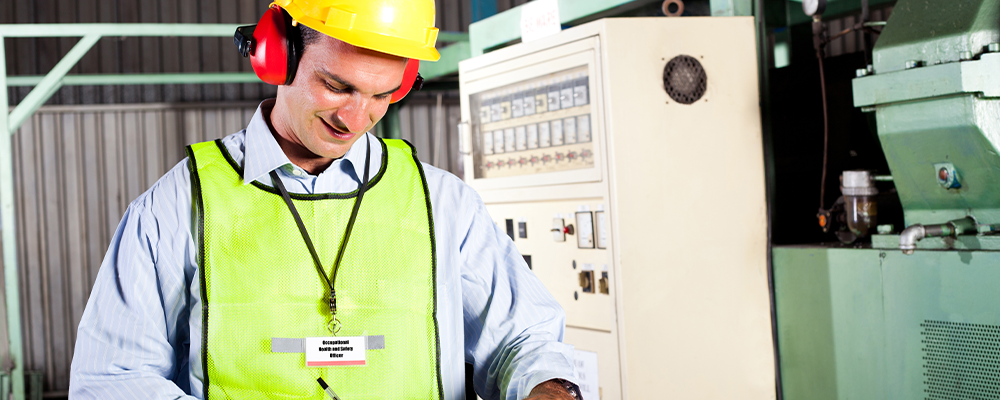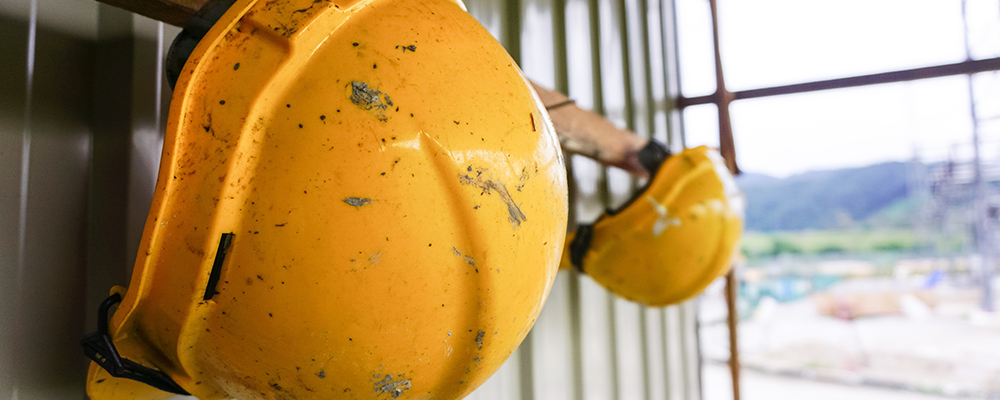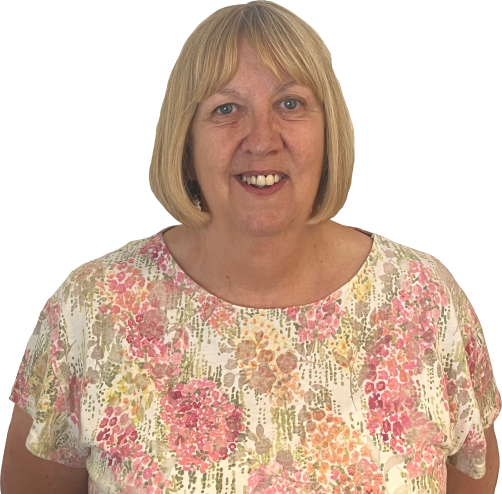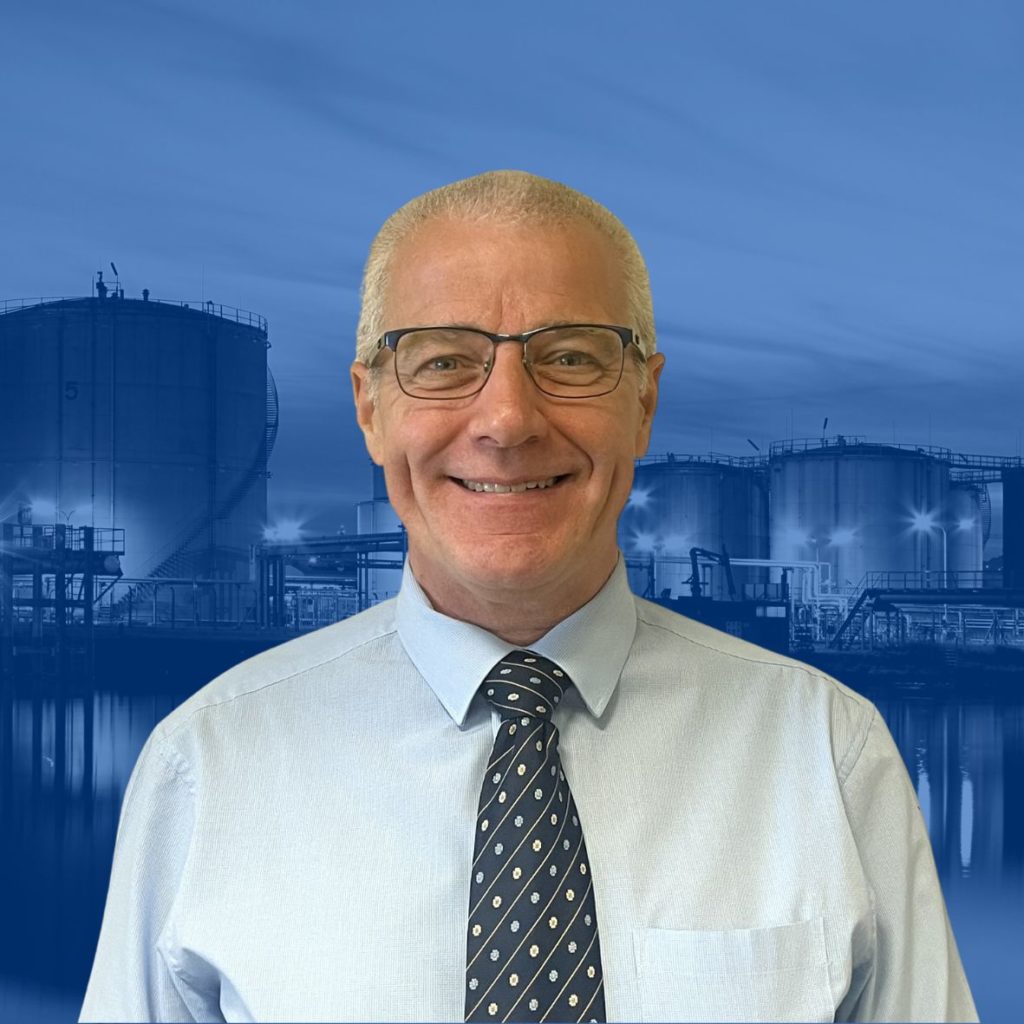
Health and Safety training for Grimsby businesses: As a business owner, knowing where to start with health and safety can be tricky. What are my legal duties? Am I compliant? How do we manage health and safety?
Local safety provider, Reynolds Training Services, can answer these questions. In doing so, we’ll tailor a plan around your actual needs rather than depleting valuable time, money and resources on trivial risks and unnecessary paperwork.
How it works is simple. Our specialists assess the real risks that you face then action your safety strategy in a fun and cost-effective way.
The end result?
- Protect staff and visitors
- Decrease and mitigate incidents
- Save money and working days lost
- Improve safety and technical competence
- Comply with legislation
How can we access Reynolds Training Services safety services?
Let’s say, for example, that your business needs to extinguish fire risks. As we are right on your doorstep, you can forgo the additional monetary and time costs of sending staff away or drafting in training providers from afar. Reynolds Training Services comes to you. We can carry out a Fire Risk Assessment then provide the relevant training.
Whatever your requirements, accessing our safety services is easy. Simply:
- Attend training at HCF CATCH, Stallingborough, on the outskirts of Grimsby
- Stay at work and we’ll bring the safety party direct to your Lincolnshire-based site
- Put your workers through their paces with our eLearning platform
With specialisms in occupational, process, fire and industrial safety, let’s talk about securing your safety procedures. Good workplace safety, after all, doesn’t happen by accident.
[cta_button]Make contact[/cta_button]

The final bell just rang for students from the School of Engineering at the University of Hull who undertook practical process safety training with Lincolnshire-based provider, Reynolds Training Services.
This is the second year Reynolds Training Services has delivered practical process safety skills and knowledge to the University’s chemical engineering students.
“The idea is to instill core process safety competencies into the students before they enter the industrial workplace,” Reynolds Training Services managing director John Reynolds said in explanation of the partnership between his training company and the University of Hull.
“This year’s intake of students,” he added, “got a firsthand taste of what it means to process safety on high hazard sites. This real-world experience supports and enhances the theoretical-based knowledge the students acquire in the lecture room.”
The students, it would seem, agree. Mr Reynolds said they had provided some “fantastic feedback” about the learning experience with RTS.
“From workshops to a visit to Inter Terminals’ high hazard site, the experience proved beneficial for all involved,” he commented. “The students kindly provided feedback so, rather than hear it from us, check out some of their comments and pictures of the trip to Inter Terminals below.”
In the words of the students
Asked how they found the learning experience with RTS, the students answered:
“The whole 2 day trip was very informative and helpful. Reynolds Training Services sure made me realise what a chemical engineer is and his part of the job in the plant,” Polytimos Stavropoulos.
“Very informative, good fun, useful experience and cracking jokes,” David Kocsis.
“The learning experience with Reynolds Training Services was really interesting and a helpful way of coordinating the theoretical and practical skill,” Dana Julean.
“Made something that could be very dull fun and exciting,” Barney Carter.
“The combination of practical and visual learning has aided my understanding of this module better,” Ahmed Mohamed.
“The experience was very good and refreshing. It helped me understand the theory as I was able to visualise it and able to apply my knowledge to practical tasks,” Ridwan Haashi.
Asked whether the practical training enhanced their theoretical knowledge of process safety, the students answered:
“All the techniques and methodologies will be very useful and were all well taught,” Daniel Coelho.
“Really appreciate the wealth of experience provided by the programme facilitators. Thank you,” Onome Festys Okome.
“Absolutely! I could put together my skills learnt in lectures with the real world,” Rebecca Milazzo.
“The practical training really got me involved with process safety,” Samia Nara Santos Vasoncelos.
“I now fully understand the process safety theoretical module of my course,” Zahra Akram.
“Seeing how the COMAH regulations are actually put into practice makes you realise how important they are because the plant is such a dangerous place,” Karen Atayi.

Press release date: 12th February 2015
With the regulator placing a renewed focus on process safety, Reynolds Training Services has just completed its second year of grassroots safety training with students from the School of Engineering at the University of Hull.
Reynolds Training Services and University of Hull forged the partnership back in 2014. The alliance is designed to support and enhance students’ theoretical studies by way of practical, onsite based training.
The intake of 2015 got involved in classroom sessions, workshops and practical onsite training at Inter Terminals’ west and east sites in Immingham.
“This type of training means we can infuse strong process safety skills and knowledge into the next generation of high hazard workers,” explained Reynolds Training Services managing director, John Reynolds.
The Health and Safety Executive kicked off 2015 by urging industry to cultivate safer processes across their plants. In doing so, major high hazard sites were told to adopt an holistic approach to ensure vital safety information travels from operators on the ground to leaders in the boardroom.
Mr Reynolds commented: “Whilst industry has taken steps forward, as the Regulator says, we do need to further improve process safety across the sector. This requires strong leadership, knowledge sharing across workers and other sites and the implementation and continual review of safety systems.”
“But what about those preparing to enter industry?” he asked. “Well, the partnership with Hull gives us the opportunity to embed key safety knowledge in the minds of young students.”
“This way,” he added, “we are able to simulate a top-down and bottom-up culture change in industry, focusing both on those already in the sector and those preparing to enter it.”
A studious approach to process safety
Dr Philip Rubini, head of chemical engineering at University of Hull, said he’d been “very impressed with the organisation by RTS” and that his students had “totally enjoyed themselves”.
Feedback from the students confirm Dr Rubini’s comments, with the majority asserting that the practical training had enhanced their theoretical knowledge of process safety.
Student Rebecca Milazzo said she came away with the ability to “put together my skills learnt in lectures with the real world,” whilst Daniel Coelho added that “all the techniques and methodologies will be very useful.”
As part of the training package, Inter Terminals granted access to its west and east sites in Immingham. Mr Reynolds commented: “As a top tier COMAH site and supplier of industrial services including cargo logistics, bulk liquids and gas storage, we couldn’t think of a better place for the students to see actual prevention and mitigation systems in action.”
“During the visit, the students gained extra insight from two of Inter Terminals’ experienced safety officers. Their assistance enhanced the students’ experience, providing greater insight into regulatory controls and how these are implemented site-wide.”
Planning for a safer tomorrow, today
Looking ahead, Mr Reynolds said his Lincolnshire-based training company was already planning for next year’s intake of students from Hull.
“The idea of instilling core process safety competencies into students before they enter the industrial workplace is a compelling model,” he stated. “The more young people who enter industry with key skills the better.
“As such, we’ll be looking at expanding our own outreach and also talking to other safety training providers about how they can get involved with education institutions in their own localities.”
Notes to editors:
More about University of Hull
The University of Hull provides a cutting-edge educational experience for over 18,000 students a year. The academic portfolio contains 50 disciplines across the arts and humanities, business, education, health, the sciences and the social sciences.
As one of the major players in the regeneration of Hull and Scarborough, the University also has a significant impact on local economic and social growth.
For more information visit University of Hull
————————-
More about RTS
Reynolds Training Services is a leading provider of specialist safety training and consultancy to the petroleum and petrochemical industries and wider world of work. The company has a long history of helping employers, staff and individuals exceed workplace health and safety legal requirements.
Onsite Health and Safety Training
————————-
Press enquiries:
Name: John Reynolds
Position: Director of Reynolds Training Services
Location: HCF CATCH
Email: john@reynoldstraining.com
Tel: 01469 552 845
Visit the Reynolds Training Services press page

Reynolds Training Services is taking a new approach to tackling health and safety by sponsoring Market Rasen Rugby Club’s under 13s team.
“At RTS, rugby is almost on par to our first passion – health and safety,” Reynolds Training Services managing director, John Reynolds, said of the sponsorship deal.
“Market Rasen Rugby Club,” he continued, “performs a fantastic job developing the skills of junior and senior rugby players. So it is that we are proud to be a sponsor of this local pillar of our community.”
Mr Reynolds added: “From the players, to the coaches, to the referees, to admin staff and volunteers, Market Rasen Rugby Club feels like a family and we are happy to be part of it.”
[gallery_slider]
In March 2014, the club as a whole received accredited status from the Rugby Football Union and Sport England.
[cta_button]To get involved with the club please visit its website[/cta_button]

Health and safety news: Go in. Stay in. Tune In! That’s the name of a new campaign designed to keep people safe in the event of a major accident on a high hazard site.
Humber Chemical Focus is working with local agencies and industry to create a practical advice resource for members of the public. Arrangements have also been made with local radio stations to issue emergency warnings in the event of an incident.
At the centre of the campaign resides an informational website where members of the public can find all they need to know about emergency response procedures.
There is, of course, no increased risk to the public. Go in. Stay in. Tune In! is simply part of a continuing process to raise awareness as required by the Control of the Major Accident Hazards Regulations.
It is about alerting people in the event of an incident and preemptively educating them as to what steps they should take.
So, what should we do if an incident occurs?
Major emergencies can be triggered by an array of incidents. Go in. Stay in. Tune In! advises the public to follow these three simple steps:
Step 1: Go In
Go indoors. Do not collect your children from school, they will be properly cared for.
Step 2: Stay In
Switch off ventilation fans, aircon units and all sources of ignition, including gas and electrical heating appliances. Block incoming draughts and close windows. Do not light matches or spark naked flames. Do not smoke. Stay calm and rest.
Step 3: Tune In
Follow the instructions given by the companies or the emergency services and listen to the radio. Do not use the phone to contact the company, keep their lines free for emergency use.
Wait inside until the all-clear is given or you are given other advice. Messages giving the all-clear will be issued by the emergency services, company representative or local radio.
Sign up for updates and information
To learn more about this campaign and to sign up for information, head on over to the Go in. Stay in. Tune In! website.
[cta_button]Go in. Stay in. Tune In![/cta_button]

Press release date: February 7th 2015
Worldwide Tank Services has expanded its service reach into Europe by forming an “industrial strength” alliance with a leading safety training provider in the UK.
Ivor Paul Wilden, company director of WTS, confirmed the new link with Reynolds Training Services Ltd.
“The association between the two companies enables us to take our range of oil and gas safety courses to high hazard sites across the UK and Europe,” explained Mr Wilden, speaking from WTS’ headquarters in Australia.
Announcing the creation of WTS Europe Ltd, he added: “This marks part of our strategic growth plan to expand the outreach of courses in American Petroleum Institute subjects, along with ASME and AWS subjects and certification opportunities.”
Expert instructors from WTS Europe Ltd will deliver courses across Europe and direct from Reynolds Training Services’ world-class training facilities at HCF CATCH, Stallingborough.
WTS’ presence is already felt in Australia, New Zealand and Asia. Mr Wilden said the alliance with Reynolds Training Services “now enables us to take that all important first step into Europe”.
The safety exchange
The accord between the two companies will also see Reynolds Training Services take its range of courses, training and consultancy services to Australia, New Zealand and South East Asia.
As part of the two-way deal, Reynolds Training Services is set to run a range of courses through WTS including operations training, tanker discharge, occupational health and safety and fire safety training.
John Reynolds, the company’s managing director, believed the association marked “good news” for high hazard sites both in his homestead of Europe and WTS’ many regions around the world.
“WTS shares our passion and, indeed, knowledge when it comes to safety on petrochemical sites. After all, when things go wrong on these types of plants the consequences can be all too catastrophic.”
As such, Mr Reynolds expressed “confidence” that the two-way partnership would create a medium through which a wider range of key skills and knowledge could pass direct to sites.
“Thanks to this association, Reynolds Training Services as with WTS, now has access to a wider range of course material,” he said. “But the real value is that the organisations we serve across our respective parts of the world will also have access to this greater depth of knowledge.”
This, considered Mr Reynolds, would imbue high hazard sites and their workers with qualifications which enable them to demonstrate wider competence.
Note to Editors
More about WTS
Specialist Training in American Petroleum
Worldwide Tank Services delivers specialised services in integrity testing and the project management of building and refurbishment of bulk storage tanks in the oil and gas industry.
WTS, which operates in South East Asia, the Middle East, Australasia, the USA and now Europe, is a regular contributor of technical papers on the process to the Australian Institute of Engineers’ gatherings and tank conferences run by NACE in the USA.
For more information visit www.worldwidetank.com.au or email admin@wtseurope.co.uk
More about RTS
Industrial Strength Health and Safety
Reynolds Training Services is a bringer of training and consultancy solutions to industrial sites and workplaces. The company, which works with brands such as Inter Terminals and BP, does this to manage risks which are central to businesses’ prosperity.
Training packages and custom courses are accredited by NEBOSH, PAAVQ-SET, IOSH and CIEH.
For more information visit www.reynoldstraining.com or email admin@reynoldstraining.com

Major high hazard sites need to adopt an holistic approach to ensure vital safety information travels from operators on the ground to leaders in the boardroom, according to the chief executive of iosh.
Jan Chmiel, addressing delegates at The Process Safety Management Summit II on January 21st, said “good leadership” had the potential to transform safety management systems.
“Given the enormous responsibility on the shoulders of our hazardous industry leaders, we know their mindset must always be questioning, always be asking, what might be wrong with my process and how can I make it better.”
Such an approach required a “special type of stamina” coupled with “in-depth skill, knowledge and experience”, he explained, adding how it then took “someone to always question the status quo”.
Mr Chmiel called on major high hazard sites to “invest in building a culture of care” where all workers and contractors “believe that managers really value process safety and want to hear their concerns and ideas for improvement”.
He went on: “Good health and safety, encompassing both process safety and personal safety, is absolutely vital and to help monitor this we need effective leading and lagging indicators for each of these essential incident areas.
“With stakeholders increasingly demanding transparency on risk management right through organisations’ supply chains, such data can also help provide important public assurance.”
Leadership, he added, needed to be “visible and felt” so that process safety management is “firmly challenged when it’s poor and loudly championed when it’s good”.
Cultivating a health and safety culture
Mr Chmiel called for culture which promotes the free flow of information across all levels of a major high hazard site.
He explained: “Everyone in the organisation needs to understand how vital managing risk is to preventing disaster and boosting productivity. Good safety design, engineering and management must be recognised as an investment and not a cost.
“So leaders need specific training and mentoring and to develop good interpersonal skills and strong multidisciplinary approach.”
Mr Chmiel continued: “This will mean that site visits gather invaluable intelligence about what’s really happening on the ground and, importantly, it will help them use mindfulness – sometimes dubbed chronic unease – and ensure that managers in turn adopt this approach and feel able to feed any bad news up the chain using input from their front line operators.”
Processing good onsite health and safety, he said, required “everyone to look out” for personal and process safety, sharing information along the supply chain so that lessons from other organisations could also be learned.

Health and safety tips: Lockout and tagout procedures are deployed in industry to ensure that dangerous machines are properly turned off and not restarted before the completion of maintenance work.
Lockout and tagout procedures were established for Control of Hazardous Energy, (more…)

Health and safety news: Judith Hackitt, chair of the health and safety executive, has urged businesses to process better onsite safety in a bid to improve safety standards across the major high hazard industries.
“A great deal of progress has been made,” said Ms Hackitt, addressing delegates at The Process Safety Management Summit II on January 21st.
Even so, many businesses still refused to “recognise that process safety is part of what they do”, she added.
“I still find it hard to believe that people in warehousing and storage of dangerous substances try to argue the case that process safety does not apply to them.”
Ms Hackitt said the time had come for business leaders “to do something”.

With increasing numbers of SMEs now operating high hazard sites, the chair of the Health and Safety Executive has cautioned that the regulations apply to businesses of all sizes.
Judith Hackitt, addressing delegates at The Process Safety Management Summit II on January 21st, said small businesses in the sector should not be privy to a relaxation of health and safety regulations.
“There is a much greater number of smaller entrepreneurial companies operating major hazard facilities”, she said, adding that “often those businesses do not have the backup of extensive in house technical resources”.
Ms Hackitt continued: “What we cannot do is allow ourselves as regulators or you, as operators, to fall into the trap of thinking a small operator equals low risk or, worse still, SMEs need to have a relaxation of standards because they are small and because they can’t afford to do what we’d expect of the big corporations.”
Instead, such organisations needed help accessing knowledge, acquiring competence and embedding process safety into their operations, she said.
The HSE, she recalled, had investigated 115 incidents at major hazard sites last year, something Ms Hackitt believed demonstrated that “the old lessons are still not yet being learned by the people who need to learn them”.
In addition to existing safety risks highlighted by incidents such as Buncefield, she said the changing face of industry over the past two decades posed a raft of new safety challenges.
Pointing to the “many new processes” which had entered the sector, Ms Hackitt said: “We must not only keep focus on the hydrocarbon risks associated with petrochemicals, we need to recognise there are new and possibly not well understood high hazard risks now emerging in this sector.”
The Process Safety Management Summit II, presented by the UK Process Safety Management Project Board, is the UK’s largest gathering of practitioners and executives from industry, stakeholder and regulatory bodies.












